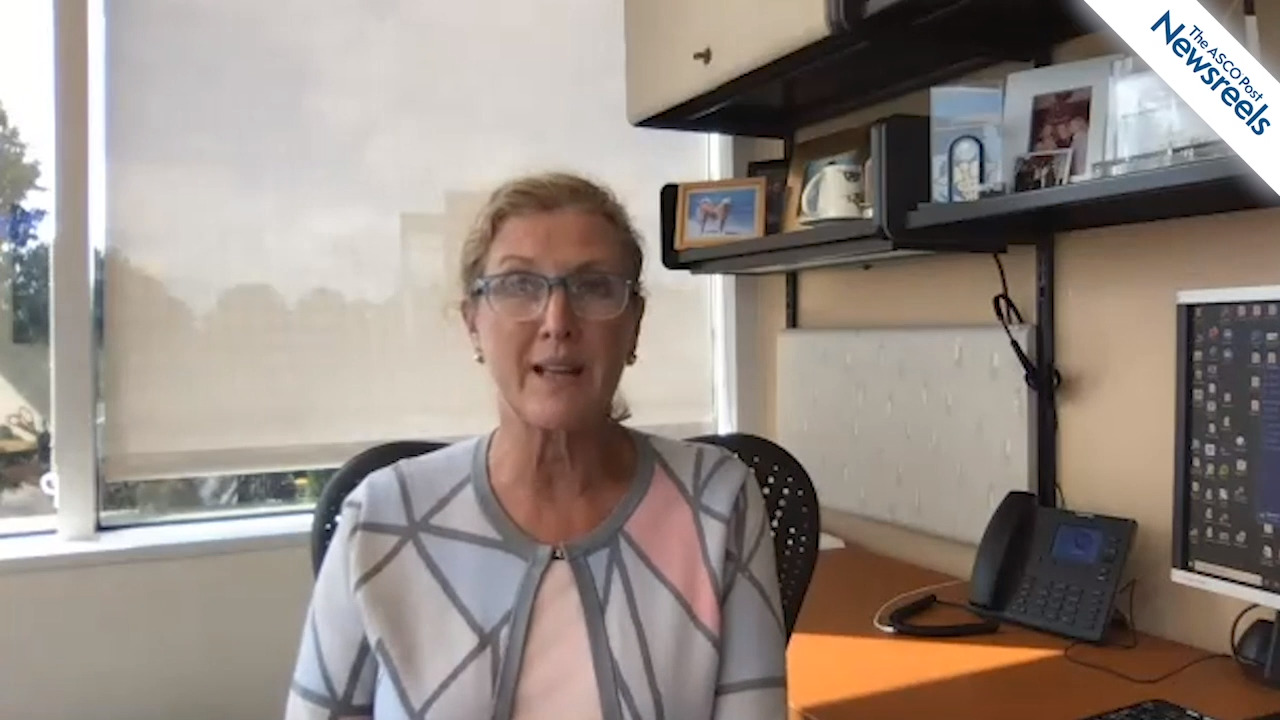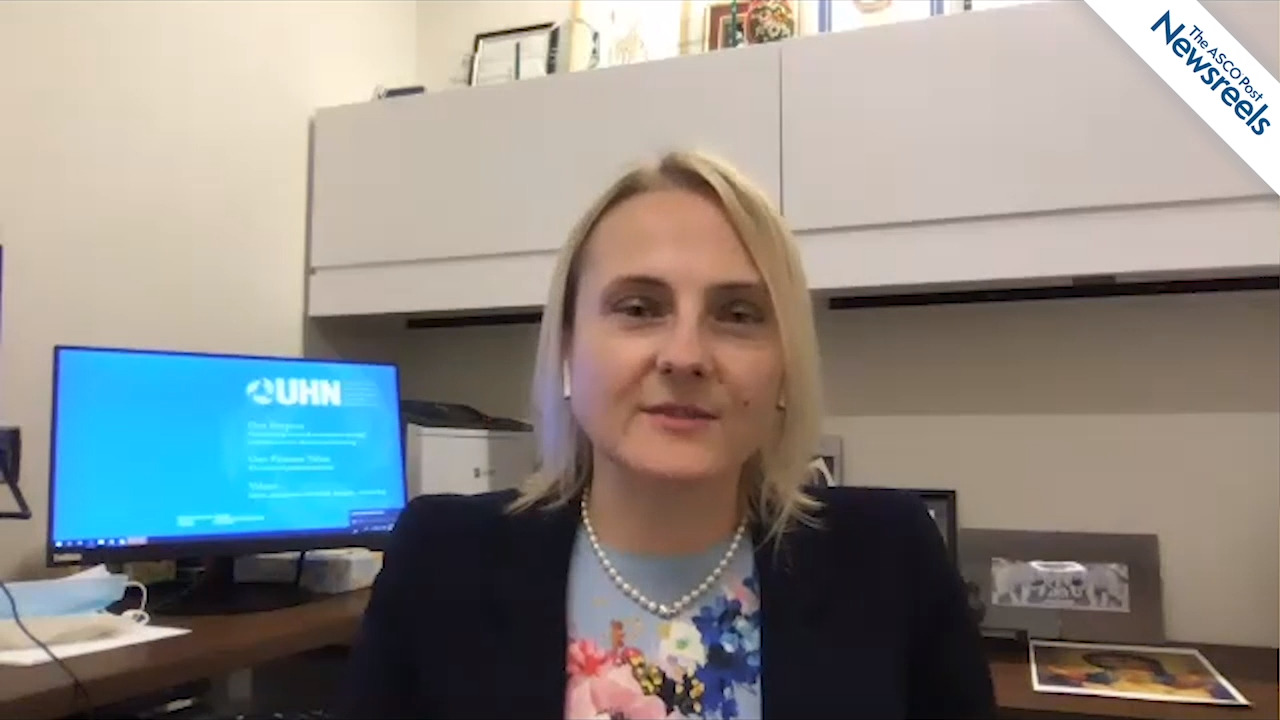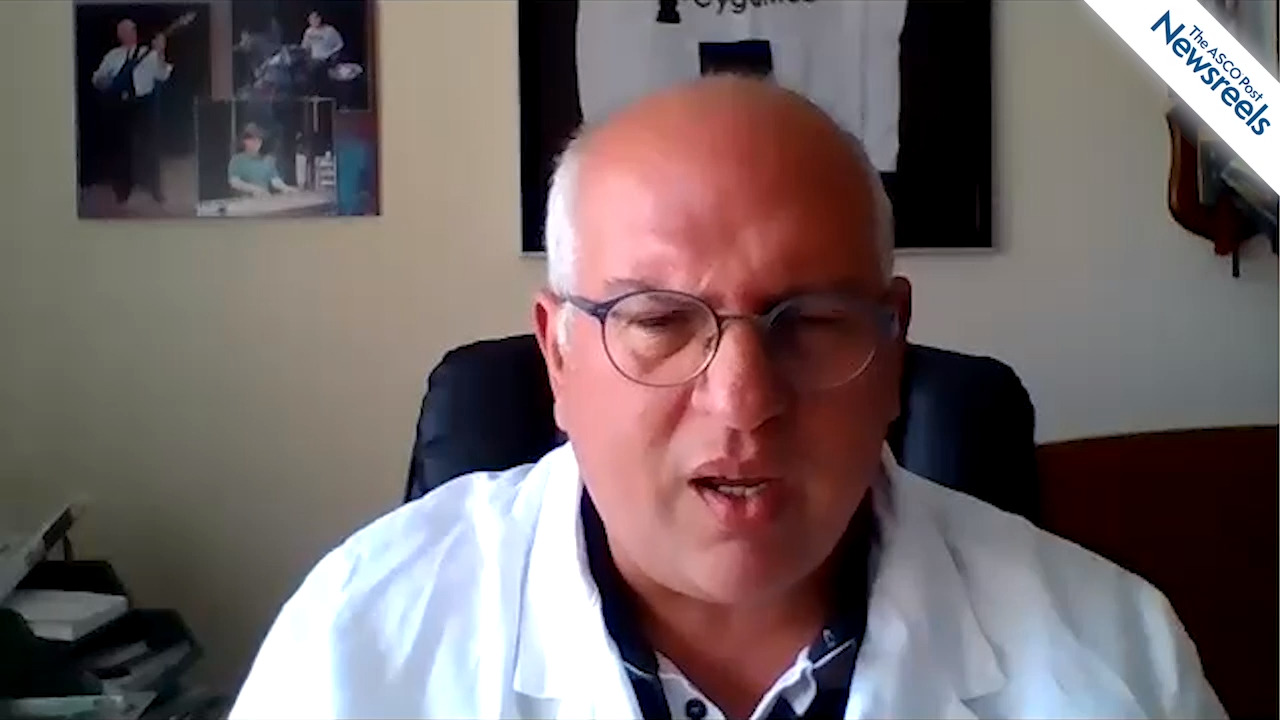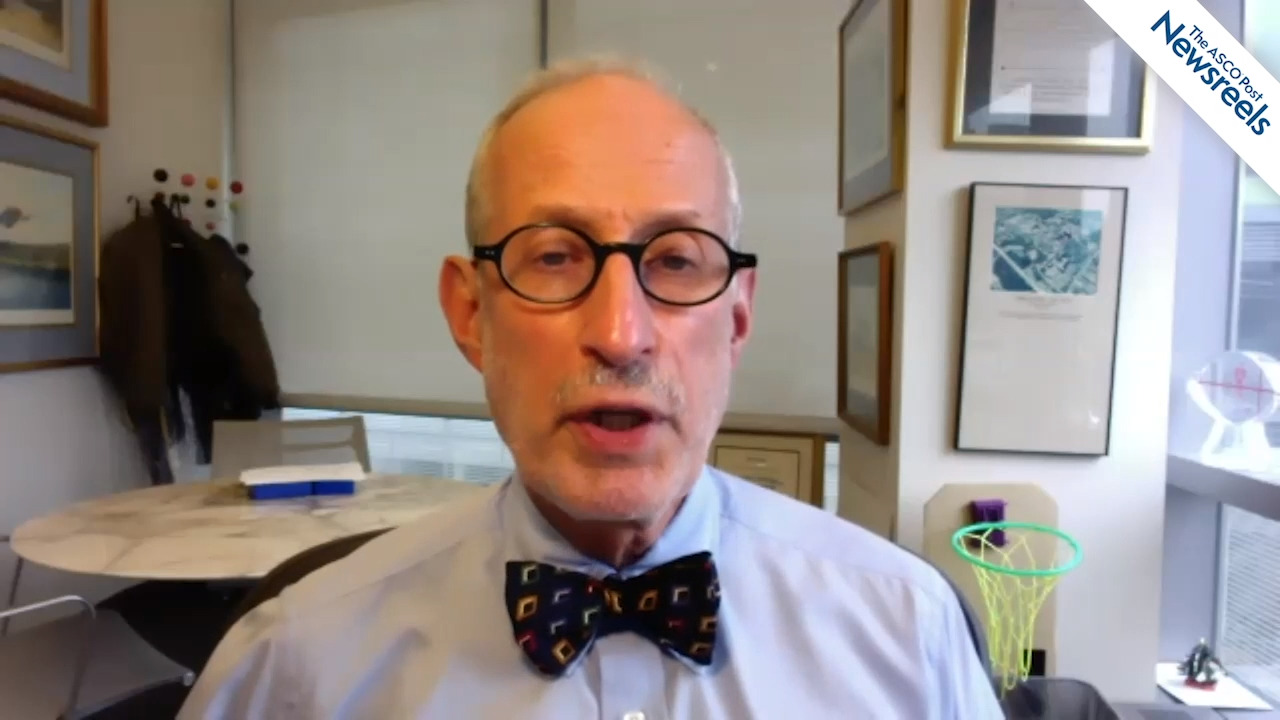Alexander M. Eggermont, MD, PhD, on Melanoma: Pembrolizumab vs Placebo After Complete Resection
ESMO Virtual Congress 2020
Alexander M. Eggermont, MD, PhD, of the Princess Maxima Center for Pediatric Oncology, discusses final results of the phase III EORTC 1325-MG/Keynote 054 trial, which confirmed a sustained recurrence-free survival benefit of pembrolizumab vs placebo in patients with resected high-risk stage III melanoma, as well as a decrease in the incidence of distant and locoregional recurrence (Abstract LBA46).
The ASCO Post Staff
Lisa A. Carey, MD, of the University of North Carolina, discusses phase III results from two IMpassion trials, 130 and 131, which explored, respectively, atezolizumab plus nab-paclitaxel vs placebo plus nab-paclitaxel in previously untreated locally advanced or metastatic triple-negative breast cancer and first-line paclitaxel with or without atezolizumab for unresectable disease (Abstracts LBA15 and LBA16).
The ASCO Post Staff
Monika K. Krzyzanowska, MD, MPH, of the Princess Margaret University Health Network, discusses study findings on remote proactive telephone-based toxicity management for patients with breast cancer receiving chemotherapy. Although the telehealth program was associated with fewer grade 3 toxicities and a slight decline in quality of life, it did not lead to fewer emergency department visits and hospitalizations (Abstract LBA87).
The ASCO Post Staff
Erika P. Hamilton, MD, of Sarah Cannon Research Institute, discusses results of the nextMONARCH study, which indicated that combining abemaciclib with tamoxifen improved overall survival. Dr. Hamilton also details adverse events in different arms of the study (Abstract 273O).
The ASCO Post Staff
Paolo A. Ascierto, MD, of the Istituto Nazionale Tumori, discusses phase II results on progression-free survival for patients with advanced melanoma in the SECOMBIT study, whose aim is to evaluate the different sequencing of a BRAF inhibitor (encorafenib) plus a MEK inhibitor (binimetinib) with ipilimumab plus nivolumab (Abstract LBA45).
The ASCO Post Staff
Jeffrey S. Weber, MD, PhD, of the Perlmutter Cancer Center, NYU Langone, discusses the 4-year recurrence-free and overall survival results from the CheckMate 238 study, which showed adjuvant nivolumab continues to be an effective treatment, vs the comparator ipilimumab, for patients with resected stage III/IV melanoma (Abstract 1076O).





